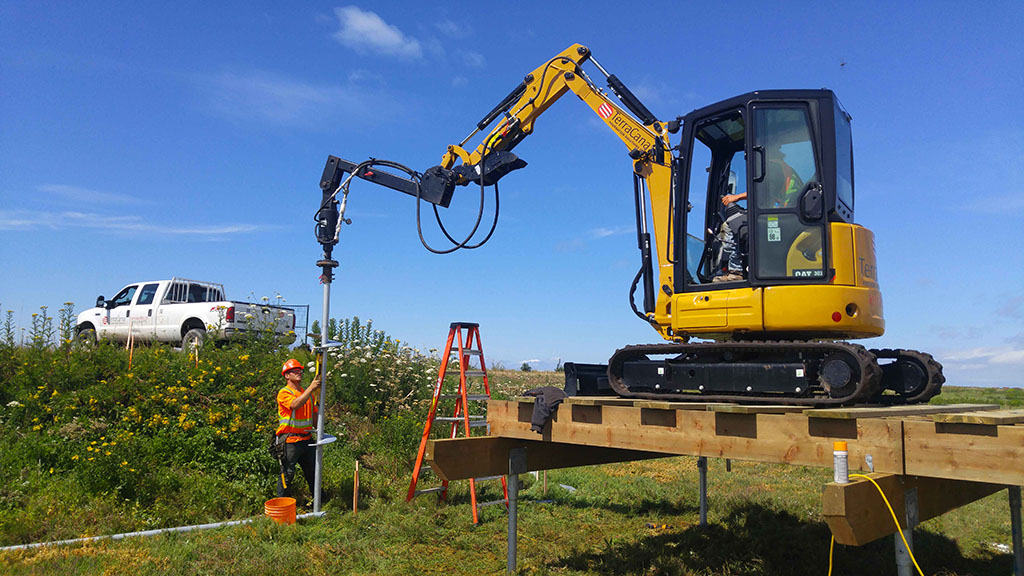
Image Source: Google
When it comes to constructing a building, the foundation plays a crucial role in ensuring its stability and durability. Traditionally, concrete footings have been used to support structures, but in recent years, a new method called screw pile installation has gained popularity. This innovative technique offers numerous benefits that make it a viable alternative to conventional foundation systems.
1. Quick and Efficient Installation
Screw pile installation is a fast and efficient process compared to traditional foundation methods. With the use of specialized machinery, screw piles are drilled into the ground, eliminating the need for extensive excavation and concrete pouring. This significantly reduces the overall construction time, allowing for quicker project completion.
2. Cost Savings
Due to the streamlined installation process, screw pile foundations can result in cost savings. With less labor and materials required, construction companies can reduce their expenses. Additionally, the speed of installation also means less time spent on-site, resulting in lower labor costs. Furthermore, the use of screw piles eliminates the need for curing time, allowing construction projects to progress at a faster pace, ultimately saving both time and money.
3. Versatility and Adaptability
Screw piles can be easily installed in a variety of soil conditions, making them a versatile foundation solution. Whether it's clay, sand, or even rocky terrain, screw piles can be adjusted to suit the specific needs of the project. This adaptability allows construction companies to tackle projects in various locations and environments without having to worry about the limitations of traditional foundation systems.
4. Eco-Friendly Option
Screw pile installation is an eco-friendly choice for construction projects. Unlike concrete footings, screw piles do not require the use of large amounts of water or harmful chemicals. Additionally, the installation process produces minimal soil disturbance, reducing the impact on the surrounding environment. Furthermore, screw piles can be easily removed and reused, making them a sustainable foundation solution.
5. Enhanced Stability
Screw pile foundations offer enhanced stability compared to traditional foundation systems. The unique design of the piles allows them to be securely embedded in the ground, providing a strong and stable base for the structure. This stability is especially beneficial in areas prone to soil movement, such as coastal regions or areas with high moisture content. The secure connection between the piles and the structure ensures greater resistance to settlement and shifting, resulting in a more durable and long-lasting building.
6. Reduced Noise and Vibration
One of the advantages of screw pile installation is the reduced noise and vibration during the construction process. Traditional foundation methods often involve loud machinery and extensive digging, which can cause disruptions to nearby residents or businesses. In contrast, the installation of screw piles is relatively quiet and produces minimal vibrations, minimizing the impact on the surrounding community.
7. Accessibility in Restricted Areas
Screw piles are an ideal foundation solution for projects in restricted or challenging areas. Their compact size and ease of installation make them suitable for sites with limited access, such as urban environments or areas with existing structures. This accessibility allows for more efficient construction planning and execution, even in challenging circumstances.
In conclusion, screw pile installation offers a range of benefits that make it an attractive option for construction projects. From quick and efficient installation to cost savings and enhanced stability, this innovative foundation system provides numerous advantages over traditional methods. Additionally, its versatility, eco-friendliness, and accessibility in restricted areas make it a practical choice for a wide range of construction projects.